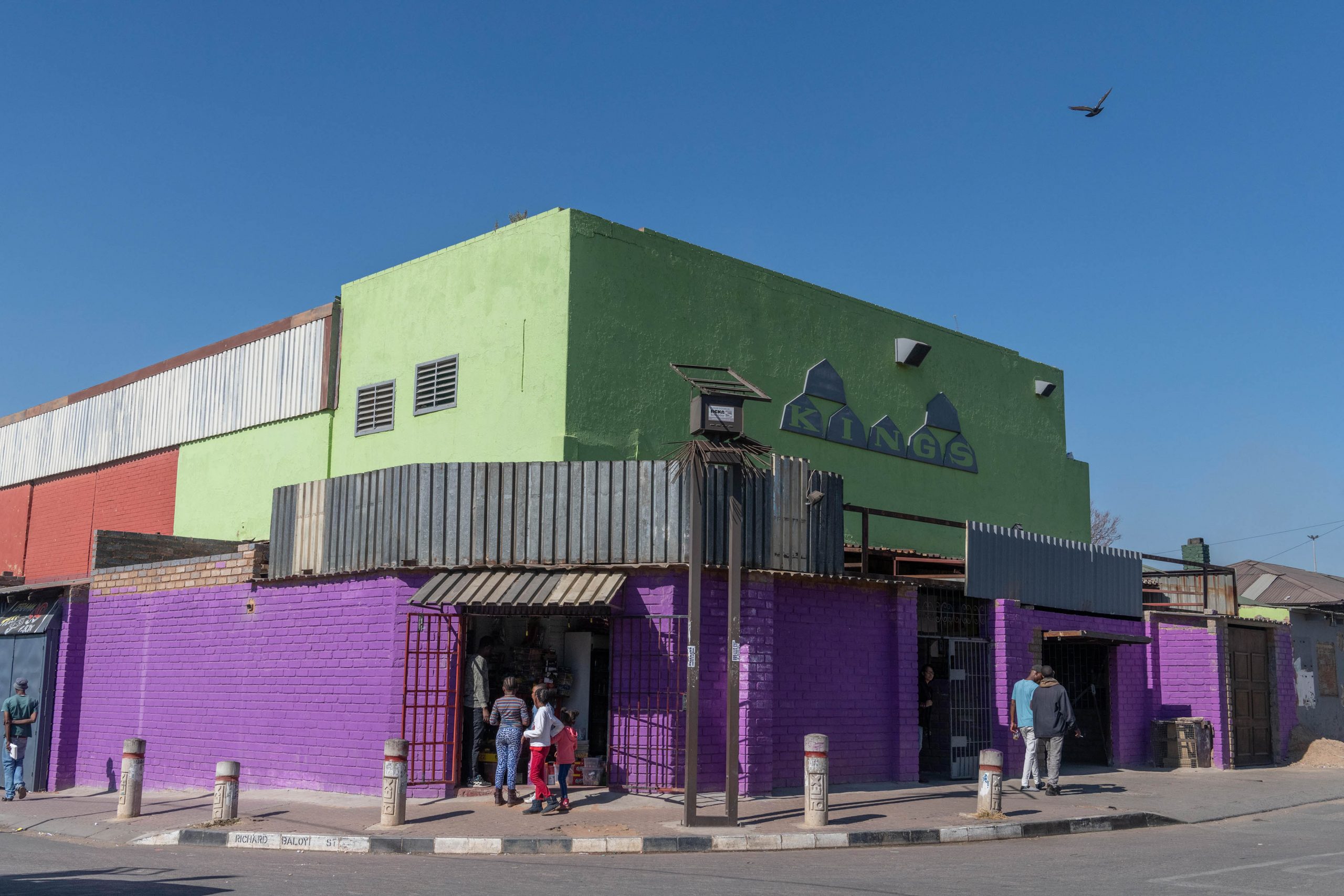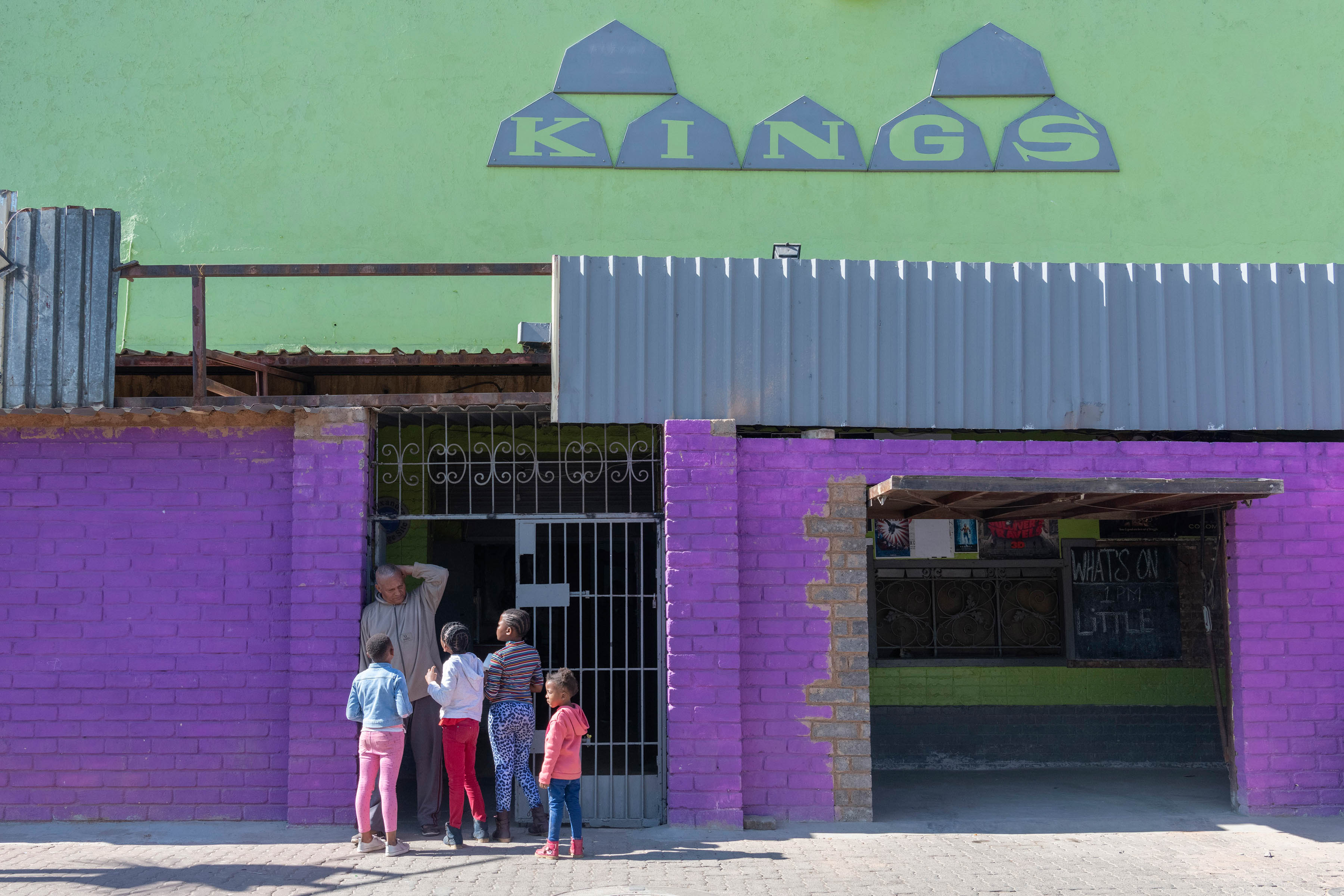The show goes on at iconic Alex movie house
Like most of South Africa’s township film theatres, the Kings Cinema died shortly after democracy was born. Now, the grand dame of Alex big screen is back.
Author:
12 August 2019

Salty, buttery popcorn. It is an unfamiliar smell on Alexandra’s western edge. But the pleasant whiffs are one of the signs that the Kings Cinema, an avocado-green building on the corner of Hofmeyer Street and 2nd Avenue, has started screening movies again.
Before its demise in South Africa’s democratic era, the films screened at the Kings were at the heart of the township’s cultural life.
Now, William Volmink has resurrected it. Standing in the iconic cinema’s dusty atrium before a Tuesday matinee screening of Hell Boy, the waggish 61-year-old hesitates when telling the story of the Kings. “Where does one start?” he asks, almost to himself.
Related article:
One place he might start are the cinema’s 450 metal chairs and worn cushions.
When the Anchors, a legendary Alex soul group, performed at the Kings in the early 1960s, there was still no electricity in the township and the cinema ran on a generator. One of the candles lighting the stage was left unattended. Soon after the show ended, the stage curtains caught alight. The cinema’s seating was destroyed in the ensuing blaze.
Volmink’s father and the other cinema directors dashed between Durban and Joburg in an effort to replace the lost seats. Each seat in the Kings today is a prize of that frantic treasure hunt.

Cinema paradiso
For the first two decades of the 20th century, the corner of Hofmeyer and 2nd was a taxi rank before its owner, John Brown, turned it into a cinema. Brown was one among a wave of entrepreneurs applying for licences to establish movie houses for black audiences at the time. It wasn’t long before The Kings – the only space of its kind in Alex – turned into a lively venue. A pole erected in the middle of the stage showed that the entertainment on offer at the cinema went beyond movies.
Volmink was a child when his father took over management of the Kings in the 1950s and started screening films from a small black projector in 1960, a few years before the ill-fated Anchors concert.
He still chuckles at the memory of watching couples kissing in the dark with the children of the other directors. “We laaities at the back, we’d say, ‘Oooh, they’re busy there!’”
Related article:
After the final credits rolled, Volmink and his friends would spill out into dusty 2nd Avenue, taking turns to act out moments and sounds from the movies. Their favourites were spaghetti westerns like Starblack, the Italian film about a sharpshooter dressed in black. “It was great days. It was really great days.”
The Kings’ popularity in the early 1970s demanded better projection capacity. Enter a brand new Cinemeccanica Victoria projector, which towered above the stout projector that saw the cinema through the previous decade and is still kept in a glass cabinet along with posters of some of the films it screened – Frankenstein, The Bridge on the River Kwai.
The gleaming Cinemeccanica – which Volmink calls “our baby that brought us here” – is also still kept at the Kings, along with mountains of film in an old projection room. Volmink’s eyes light up when he looks up at the proud, intricate machine. “When this projector beams out of here, you become part of it, you know? You hear that rolling sound of the reels, you could still hear that silent ‘hzzz’ of the reels.”

Politics at the movies
It was not all young love and spaghetti westerns at the Kings.
Apartheid had already invaded the lives of the Volmink family when, in 1963, the state expropriated the land on which their home and general dealership were built for very little compensation.
“We ended up being servants in our own domain. Growing up as children, we just had to witness how the old people were being devastated by the situation. They had nowhere to go,” remembers Volmink.
In the 1980s, state incursion extended to the Kings. The cinema’s screening of more political movies, Penny Whistle Blues among them, came to a ruthless end when police raided and bombed the cinema during a screening of Cry Freedom in 1984.
Related article:
Film was heavily censored at the time. “There was a great deal of concern that American films in particular could expose black people to African American heroes and to African American lifestyles and aspirations,” says Gairoonisa Paleker, a senior lecturer in the University of Pretoria’s historical and heritage studies department.
For all the repression, it was the seemingly innocuous arrival of television in 1976 that killed the Kings, according to Volmink. While pressure mounted to open white cinema’s to mixed audiences as attendance plummeted, the lobby against more inclusive movie houses, which included one Clive Derby-Lewis in the 1980s according to Paleker, was strong.

New township cinema
Today, Volmink has come full circle. After leaving Alex towards the end of the 1970s, he has moved back and is now living in the Kings’ original projection room behind the Cinemeccanica projector. He has spent four financially strained years getting the cinema going again.
Paleker says, “The reopening of Kings opens up a new social venue for township residents who don’t necessarily have to trek out of the township to catch a movie.”
Related article:
According to Paleker, whose research focuses on the history of film in South Africa, the monopolies of big cinema chains dealt a crippling blow to township cinema. Now, where a ticket at the nearby Sandton City Ster Kinekor costs upward of R150, adults can catch a movie at the Kings for R20 and children pay R10.
“We’re living in a community and society that needs development,” says Volmink. He hopes the Kings will host talent searches, theatre productions, art shows, church services and community concerts in a more collaborative space. “We want to provide for and make it a facility for community use.”
If the cinema’s past is as storied as the township it calls home, Volmink hopes its future will be responsive to the changing needs of Alex.





